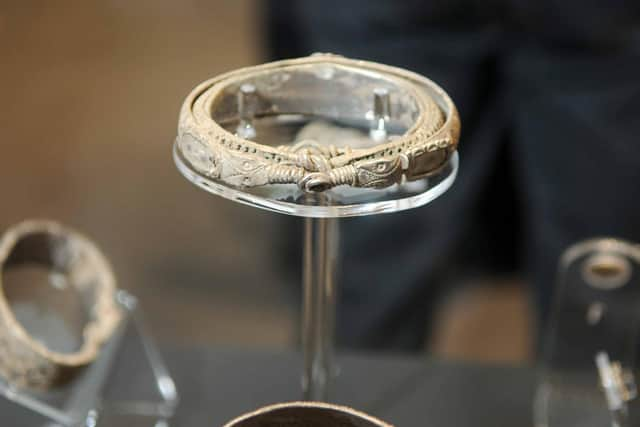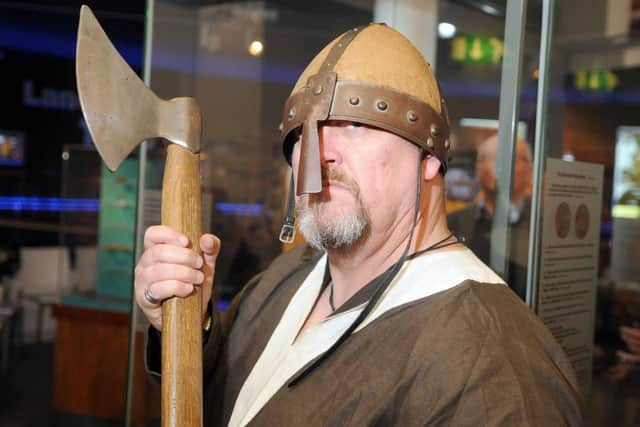1,100-year-old Viking treasure the Silverdale Hoard set to return home


Lancaster City Council has applied for funding to bring the hoard to Silverdale Library, and said it expects to hear the outcome in the next few months.
Silverdale Parish Council heard that the city council has applied for a £96,000 grant to cover all aspects of showing and protecting the treasure, which was discovered near Silverdale in 2011.
Advertisement
Hide AdAdvertisement
Hide AdIt is hoped local schools will be involved, with living history days, and The Arnside and Silverdale AONB and Oxford Archaeology North will be working together to create a virtual landscape of the period, to put the find in its geographical as well as historical context.


Michael Fletcher, chair of Silverdale Parish Council, said: "The plan is to bring it to Silverdale Library.
"It's quite a small space, so they need to do some re-organising, and create a special stand and provide security.
"It's coming back home really. It's difficult to say at this stage when it will happen, but there has been a lot of interest expressed.
"It's quite exciting."


Advertisement
Hide AdAdvertisement
Hide AdValued at £110,000, the collection, found in a field near Silverdale by a metal detectorist, is one of the largest Viking hoards ever discovered in the UK, and is believed to date to around 900AD.
It is now owned by Lancashire Museums Service, and has previously been displayed at Lancaster City Museum, The Museum of Lancashire, The Harris Museum in Preston and The British Museum.
Items include 27 coins, 10 arm-rings, 2 finger-rings, 14 ingots, 6 brooch fragments, a fine wire braid and 141 fragments of arm-rings and ingots which had been chopped up and turned into "hacksilver", which was used as a form of currency in Viking times.
A spokesman for Lancaster City Council confirmed the council had applied for the funding and is now waiting to hear whether the bid is successful.
Comment Guidelines
National World encourages reader discussion on our stories. User feedback, insights and back-and-forth exchanges add a rich layer of context to reporting. Please review our Community Guidelines before commenting.